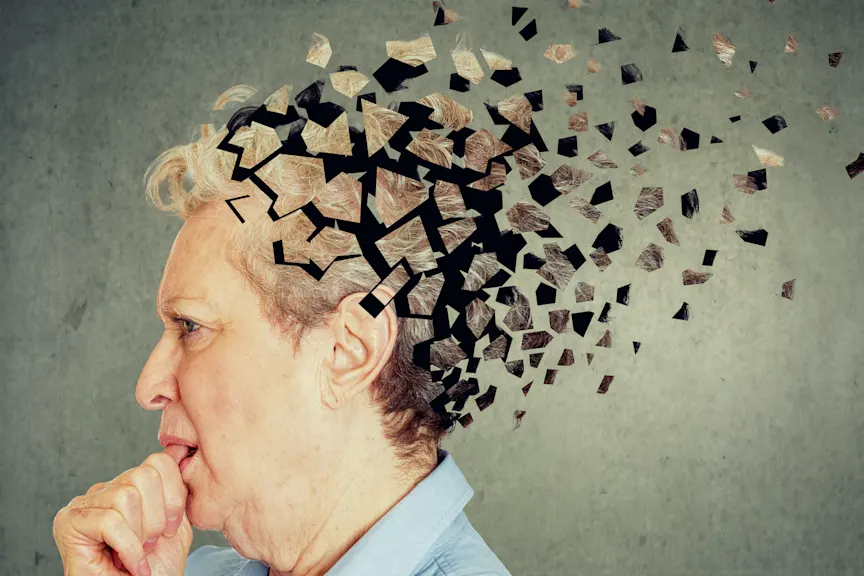
Dementia is not a disease; rather, it signifies a condition in which a notable decline occurs in a person’s ability to think, focus and remember. It is a lot more than just a memory loss. Dementia also has adverse effects on the ability to perform routine activities, behaviors, and judgment. Reading out the early signs of dementia and seeking out professional help can really help to live a better and balanced life.
Dementia is very common among Americans; some estimates report more than 3 million cases annually. Furthermore, statistical data suggest that more than 5 million American adults are living with dementia. These numbers are increasing every year. Dementia is a progressive state and may even develop into serious diseases such as Alzheimer’s.
Risk Factors Of Dementia
There are a number of risk factors that are controllable. A person can certainly reduce the risk of its development simply through healthy adjustments. Let us know some major risk factors that anyone can easily control and manage through a more balanced lifestyle.
1. Alcohol Abuse
One of the major causes of dementia is the damage to nerve cells that occur in the brain. Alcohol abuse not only impairs normal brain functioning but also extensively damages brain cells. Thus, alcohol abuse can certainly increase the risk factor to develop dementia.
Alcohol abuse not only affects brain functioning but also has devastating effects on physical health, social connections, and psychological well-being. There are some warning signs which indicate the time to seek treatment for addiction in order to live a better life. If a person is unable to identify this need, then he can definitely seek help from his loved ones in this matter.
2. Poor Diet
An unhealthy lifestyle accompanying unhealthy eating habits can also increase the risk factor for dementia. When the body is unable to acquire the required nutrition, then it is evident to observe a decline in the brain’s ability to function properly. The brain needs support in the form of calories and nutrients that we eat to keep performing normally.
3. Other Health Conditions
If you are dealing with some health issues, then you are at an increased risk of developing dementia. Studies suggest that those who have diabetes also have a greater risk factor in developing dementia. Thus, it is important to take your medications and keep the condition under control to reduce this risk factor.

Early Signs Of Dementia
The early signs of dementia are very subtle, and it might be hard to identify these signs. However, reading out these early signs and getting advice from a doctor can help to avoid its negative impacts on brain functioning and routine life. Let us review some of the early signs that could refer to dementia.
1. Losing Interest
Experts think that loss of interest in routine activities that you otherwise used to enjoy is also an early sign of dementia. Inability to perform routine tasks or loss of interest in doing routine tasks is a clear indication of dementia. As soon as you find yourself least interested in activities, then you should immediately consult a doctor for complete analysis.
2. Having Trouble With Words
Dementia also affects the linguistic part of the brain. This influence is very evident in a person’s speech. Many times it becomes hard to recall the right meaning of the word. The inability to think about the right word is also amongst the early signs of dementia.
This not only affects your ability to communicate efficiently, but it also affects your social connections and relationships. For others, it might become troublesome to understand the message that you want to convey to others.
3. Changes In Behaviour
Sudden behavioral changes and mood swings might also indicate dementia. For instance, a person who is very outgoing and extroverted might become shy all of a sudden. Similarly, a person who is usually more calm and relaxed may suddenly appear angry more often. Such behavioral changes might also be an early sign of dementia.
Many times the behavioral changes are due to a stressful event or a mishap. However, if the mood swings have no evident reason, then this is surely indicating an early sign of dementia. Such mood swings are more frequent, and a person usually experiences them routinely.
4. Impaired Judgement
Judgment is one of the major brain functions that gets affected by dementia. The poor judgment and decision-making make it really troublesome to perform and complete routine tasks. Many things indicate poor judgment, such as inability to differentiate between right and wrong, repeatedly inquiring about the same questions, state of confusion, and difficulty completing tasks.
5. Changes In Memory
Dementia has a strong connection with memory loss. However, the changes in memory are initially very subtle and progressively become very serious. Experts believe that memory loss during the very early stage of dementia is more of suspicion.
A person might easily recall and memorize past events that have occurred years ago, but he might struggle to remember little routine things such as what he has eaten earlier and where he has put the glasses.
6. Become More Disoriented
A person may begin to feel that he has become more disoriented. Such disorientation might also be an early indication of dementia. Such disorganization is actually the outcome of confusion. Dementia affects and disrupts the internal clock of the body.
Thus a person might feel lost in between time and space. It becomes hard for him to do tasks and routine activities in an organized way. Such a type of disorientation can become frustrating and may even lead to abrupt mood swings.
Take Away
Dementia is a condition that affects memory and many other brain functions. In order to ensure your health, a person should carefully watch for the early signs of dementia. Dementia is a progressive condition, and with time things start to get worse. Early diagnosis and treatment can help to live a better life.
